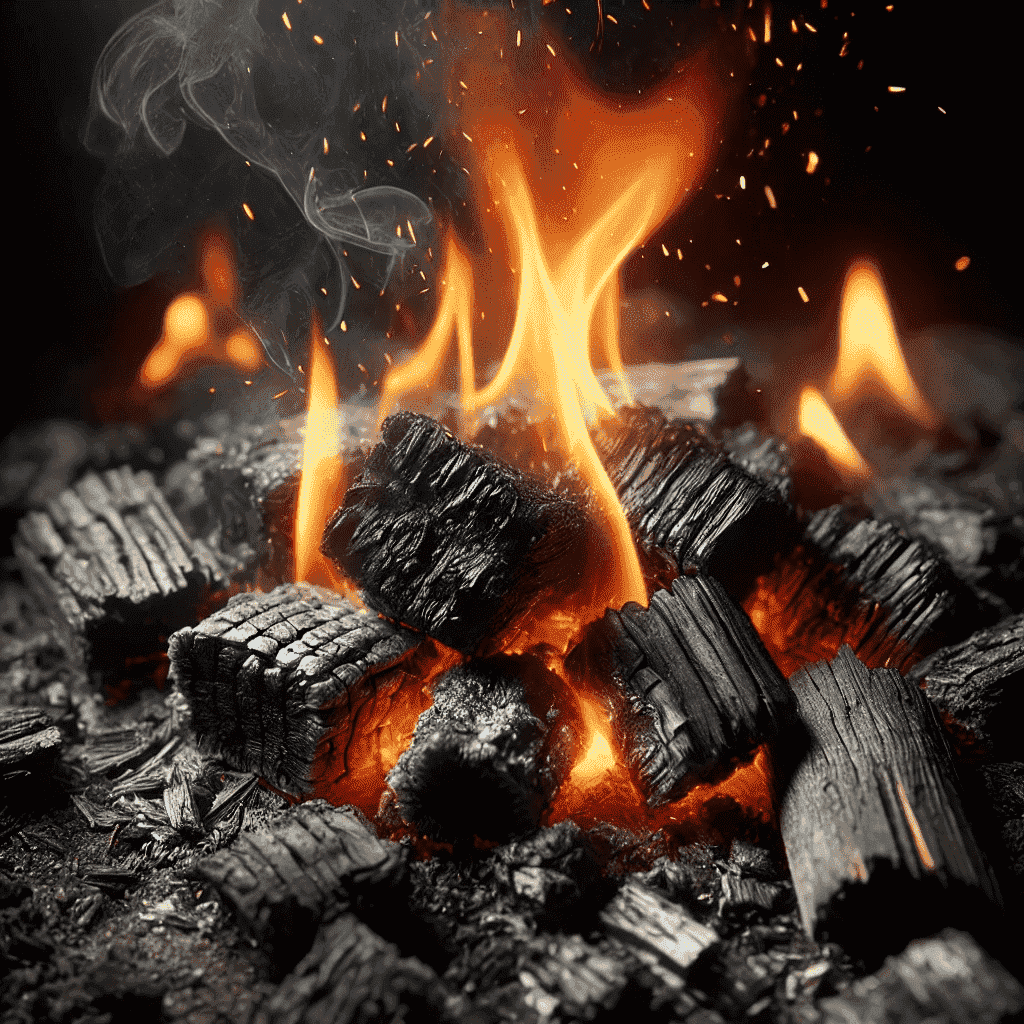Coconut shell charcoal is an important resource used all around the world. As of 2023, the global market size for coconut shell charcoal was valued at approximately USD 315 million, and it is projected to grow at a compound annual growth rate (CAGR) of around 8% from 2024 to 2032, reaching an estimated value of USD 674 million by 2032 (Coconut Shell Charcoal Market Report 2024).
With over USD 315 million in global trade, countries such as Indonesia, the Philippines, Sri Lanka and India have cultivated their lands and positioned themselves as major exporters of this critical resource. We will be discussing the primary applications of coconut shell charcoal today, as well as the reasons why many industries view this resource as irreplaceable.
Coconut Shell Charcoal Specifications
- Fixed Carbon Content: Typically ranges between 70% to 80%. High fixed carbon content is desirable as it indicates better fuel efficiency and higher heat output.
- Volatile Matter: Generally ranges from 10% to 15%. Lower volatile matter content is preferred for applications requiring higher stability and less smoke.
- Ash Content: Typically ranges from 2% to 5%. Low ash content is preferred for better combustion efficiency and less residue.
- Moisture Content: Usually ranges from 5% to 15%. Lower moisture content is crucial for higher heating value and better storage stability.
- Sulphur Content: Typically less than 0.2%. Low sulphur content is significant to reduce emissions and prevent corrosion in industrial applications.
- Particle Size: Varies based on application requirements. Common sizes include granular, powder, or briquettes.
- Density: Typically around 500 to 600 kg/m³. Higher density is beneficial for transport and storage efficiency.
- Heat Value: Usually between 7000 and 7500 kcal/kg. High calorific value is indicative of better energy efficiency.
- Hardness: The hardness of the charcoal is essential for applications like activated carbon production, where durability and resistance to abrasion are required.
Buy Coconut Shell Charcoal from Indonesia
At PT. Pandu Green Energy, we sell coconut shell charcoal with 75% carbon content, 3% ash and 0.9% impurities. Our factories are located in East Java, Indonesia.
Contact us today if you’d like a CIF quote for your country of choice!
What is Coconut Shell Charcoal Used For?
Fuel and energy
The main uses of coconut shell charcoal are fuel and energy. Its cheap costs compared to coconut charcoal briquettes and smaller sizes mean that it can be easily transported and sold. Furthermore, because coconut shell charcoal comes in chip form, there is less pressure on it to maintain a certain shape.
On the other hand, coconut charcoal briquettes need to maintain their shape (cuboid, hexagonal, etc) to be used in their intended purpose.
Besides acting as an excellent fuel source in barbecue grills and stoves, it is also widely used as industrial fuel. As a lot of industrial processes require high heat, the long burning times and high surface areas of coconut shell charcoal make it perfect for industrial processes such as foundries and brick kilns.
Activated carbon production
Coconut shell charcoal, just like any coconut charcoal, is high in activated carbon. When ground into dust, it can be used to remove impurities, chlorine, and odours for water. It is also highly effective in air purification, used a lot in air filters and purifiers to absorb pollutants and odours.
In the mining industry, activated carbon is used to extract gold from ore through the cyanide leaching process, making coconut shell charcoal desired by a wide range of industries.
Agriculture
Without good soil, most agriculture can not exist, and the development of our civilisation will slow down. Coconut shell charcoal plays an important role in soil conditioning, as it can improve soil quality by enhancing its water retention capacity and aeration, promoting healthy plant growth. Additionally, it acts as a natural pesticide when used in powder form to protect crops from pests and diseases.
Cosmetics & Health
Activated charcoal is a popular ingredient in skincare products like masks and cleansers, known for its ability to absorb toxins and impurities from the skin. Additionally, it is used in dental products to whiten teeth and improve oral hygiene by removing stains and bacteria.
Environmental application
In contrast to being used as a fuel source, coconut shell charcoal is also used to clean up oil spills. Its high porosity and large surface area effectively trap oil contaminants, making it easier to remove from water surfaces.

